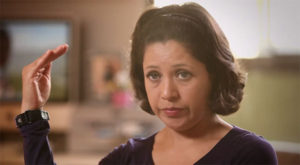Allen discusses his own journey though postpartum depression, his wife’s experience with the same illness, and how they and their relationship ultimately grew as they worked for recovery. He also talks about how little support there is for new fathers.
Transcript:
After the birth of their son, Allen’s wife was struggling. He tried to help in practical ways, but often wasn’t welcomed
For me, how that affected me was that I was thinking: well I can do it, I don’t need her help but if she’s saying that I can’t do it. So I’m questioning my own abilities as a father.
And I’ve always tried, you know, think that if she had a problem feeding our son then I would try to help but as a ‘fix-it’ type of solution. But it seemed to not work. So over the, you know, few months it just kept on going: ok I obviously can’t fix this problem and so if she’s got a, and she’s getting into this depression mode and this is: how can I fix it.
We were having problems but I didn’t realize the problems.
And what happened is that I. I went into my own little world. And she was distant from me and I was distant from her. And now looking back, and I wasn’t getting the emotional support that I, I was used to prior to having my, having our child
And that, I think what happened is that I got into my shell, I was, I needed emotional support, but as a man, you know, you don’t think you do: you can do it yourself.
His wife got help from Pacific Post Partum Support Society. But Allen was still trying to heal on his own.
You can’t go on trying to fix it yourself and it’s not going to work.
And I saw the change slowly happening in, in my wife and I think, you know, I said: ok I need, I need to change too, I can’t be living like I was when I was in my early twenties.
That was what, sort of that point in time where we all got help.
So that was, you know, that was after, you know, year and a half, two years of, of the struggle, yeah.
Allen started to attend counselling.
One word I used to describe it to my counselor was I was lost. I didn’t know where, I did not know. I can’t go to my friends and say: I’m, I can’t go to my male friends and tell them this because, you know, it’s, hmm it’s not accepted society norm that you, that, that happens.
And I can’t go to my parents to do it. I couldn’t go to anyone to do it, not, I’m not going to bring it up at work, obviously. And it was really, really crappy.
the counselor dug, dug into that trying to, you know, let’s say break a pattern. And, for me to understand why these things happen and, and, not just with what happened with my wife but just with everything in my life. Like why these certain things happen, why is it just, is it everything needs to be fixed.
and when I feel uncomfortable in a situation what happens to myself. And what happened and the biggest thing was that in a, in a tough emotional situation the doors are closed and that’s it and I take that emotion and bury it somewhere deep inside my body and leave it there and, and ignore it. So that was a, that was a big help personally.
After that, we went to see a, a couples counsel, counselor, and I think that helped a lot in terms of understanding who my wife is. And it, it really opened up my eyes in terms of what she needed.
That she needed support, not for me to fix anything. And it helped. It helped and I think that I grew from it. And I think as a couple we, we, we grew stronger.
Allen has some suggestions for what may help new parents.
As a man talking to another man, I would say just listening is the most important thing to do in, in a first year or two of your, your child’s life is just listening to what your wife or partner is saying. You don’t necessarily have to do anything, you just have to nod, give her or him support whether it’s just a hug or acknowledging their, their pain. Because I think that’s what people need to, that’s what people need is to have that, to say that: yes it is a hard time
Allen didn’t find a lot of support for new fathers in the medical community.
And I said to my wife, I said: you know what they need to have a support for new fathers. There is absolutely no support for new fathers. The doctor doesn’t even ask you how are you doing?
if the gynecologist said that: ok Dad, you know, you can get, you can get postpartum
That, that I think validates that it is a, a normal thing that will happen.
Then I think it’s just that acceptance allows men to say: yeah I got it. And then next step is to, to have access to the services that, so where do you get help.
And I think we need the health professionals out there to say: it’s real, it’s going to happen. And then this is, this is how you deal with it.
